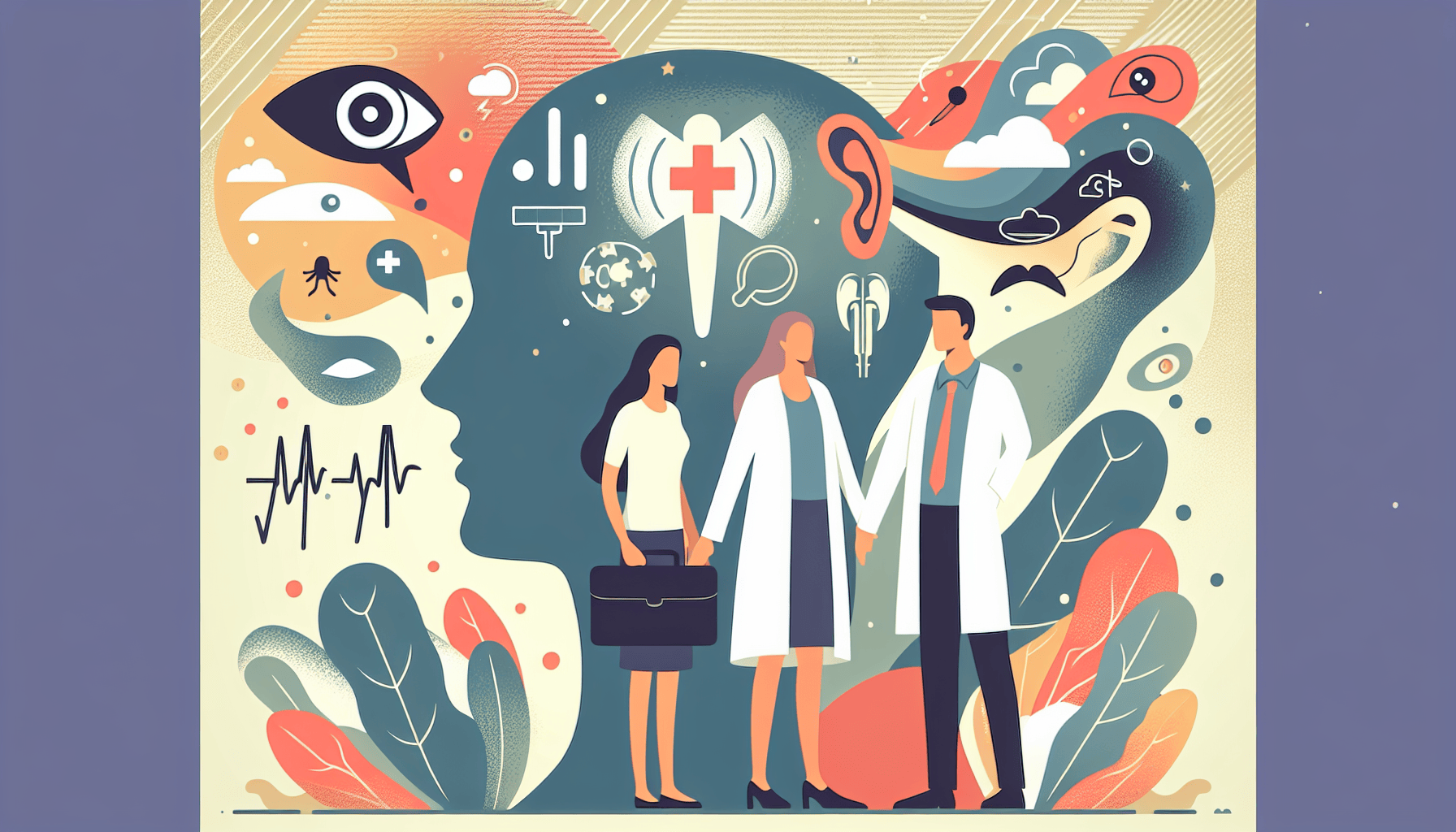Meniere's disease is a rare inner ear condition that can cause vertigo (a spinning sensation), tinnitus (ringing in the ear), and hearing loss. Usually, only one ear is affected, and the condition tends to progress slowly, with hearing loss potentially becoming permanent.
Symptoms of Meniere's Disease
The main symptoms of Meniere's disease include:
Hearing loss that may worsen over time
Episodes of sudden dizziness or vertigo lasting 20 minutes to 24 hours
Tinnitus (ringing in the ear) that may worsen before a vertigo episode and improve afterward
A feeling of fullness or pressure in the affected ear
Symptoms may come and go or fluctuate in severity. Some people may also experience anxiety or depression due to the impact of the main symptoms on their daily lives.
Causes and Risk Factors
Meniere's disease is caused by a buildup of fluid called endolymph in the inner ear, which interferes with the normal functioning of the cochlea and vestibular labyrinth. Researchers are unsure why this fluid buildup occurs, but theories suggest it may be due to:
Risk factors for developing Meniere's disease include:
Having an autoimmune condition, especially rheumatoid arthritis, systemic lupus erythematosus, or ankylosing spondylitis
Family history of the condition
Being between 40-60 years old
Being assigned female at birth (AFAB)
Diagnosing Meniere's Disease
To diagnose Meniere's disease, your doctor will examine your ears and ask questions to rule out other potential causes of your symptoms. They may use various tests, including:
Hearing tests (audiometry)
Balance tests (vestibular test battery)
Lab tests
Imaging scans, such as CT or MRI scans with contrast
Treatment Options for Meniere's Disease
While there is no cure for Meniere's disease, various treatments can help manage symptoms:
Lifestyle changes, such as a low-sodium diet and avoiding triggers
Medicines for vertigo, such as anti-nausea, anti-vertigo, diuretic, and motion sickness medications
Other therapies, including pressure pulse treatment, vestibular rehabilitation therapy, and counseling
Middle ear injections of gentamicin or steroids
Surgery, such as labyrinthectomy, vestibular nerve section, or endolymphatic sac decompression
Alternative therapies, like acupuncture, acupressure, tai chi, and supplements (under doctor supervision)
In addition to medical treatments, there are several home treatments and self-care tips that may help manage symptoms and prevent vertigo attacks, such as sitting or lying down during an attack, avoiding triggers, and staying hydrated.
Living with Meniere's Disease
Living with Meniere's disease can be challenging, but there are ways to manage the condition and maintain a good quality of life. It's essential to work closely with your doctor to develop an individualized treatment plan and make necessary lifestyle changes.
When it comes to driving and flying, most people with Meniere's disease can do so safely, but it's important to inform the relevant authorities and take precautions, such as keeping medication on hand and choosing appropriate seating.
Although Meniere's disease is not life-threatening and does not shorten life expectancy, it can significantly impact quality of life. With proper treatment and management, however, many people with Meniere's disease can lead fulfilling lives.
For more information on Meniere's disease, visit reputable sources such as the National Institute on Deafness and Other Communication Disorders, the Mayo Clinic, and the Vestibular Disorders Association.



